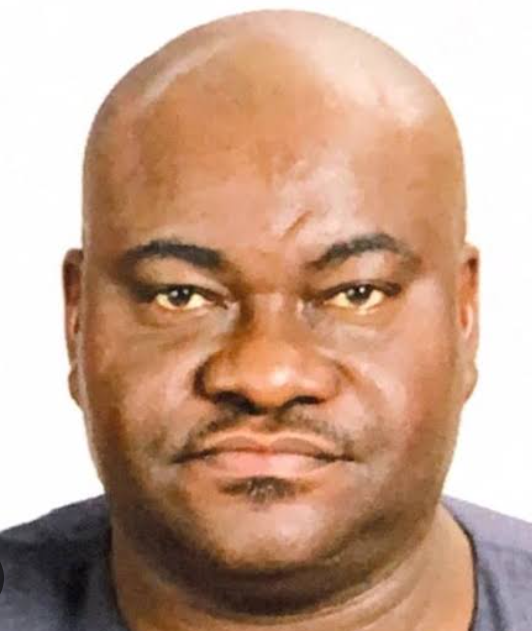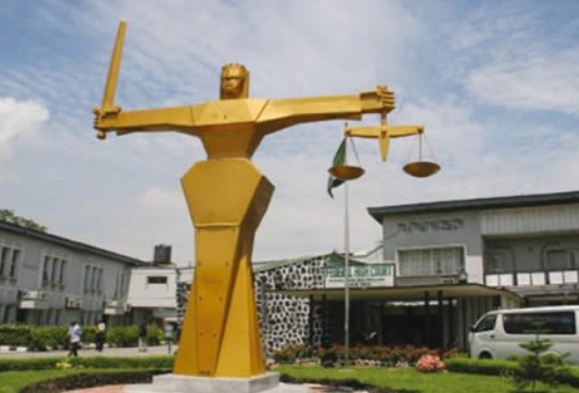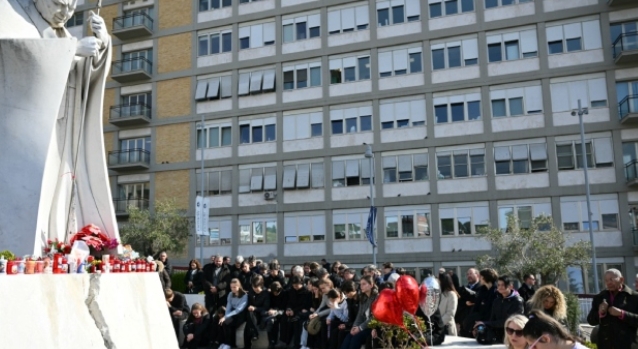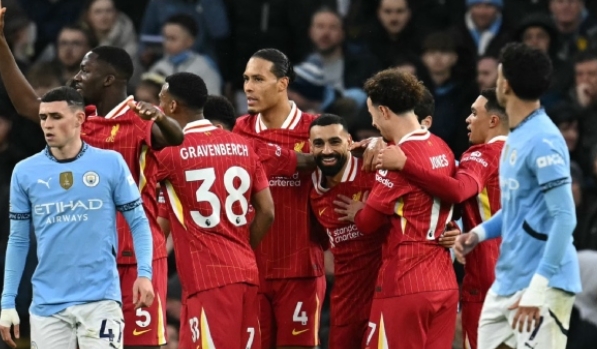News
CHANGING ORIENTATION OF OUR FORMER STARS*

By Tunde Olusunle
Several years after he retired from his illustrious career as a professional footballer, Peter Osaze Odemwingie was in the news a few weeks back. Very thankfully, his rebound was not a worrying piece of news. It has become customary for the medical plight of many of our former sportsmen to jump into our faces from the pages of tabloids. Often times, such unsavoury appearances, come with alms-solicitation bowls, foregrounding the dire situations of the subjects at those points in time. Odemwingie’s narrative, however, is a very heartening piece of news. He belongs to a new breed of our sports greats who are able to reinvent themselves after they cease to feature in big leagues across the world, even as we view them regularly on our television screens. Odemwingie’s example is one which should inspire our sports professionals, serving and upcoming.
Osaze Odemwingie by the way, played professional football for nearly two decades, specifically between year 2000 and 2018. A broad-based study of the careers of most footballers across the world is that their years of top, on-field performance averages 15 to 20 years. They sign their first professional contracts when they are about 18 years of age and will be fortunate to keep playing at optimum levels two decades after. Not every football player can be Roger Miller of Cameroon; Cristiano Ronaldo and Pepe of Portugal; Sergio Ramos of Spain, James Milner of England, or our own Kanu Nwankwo and John Utaka. These outfield players grossed or overshot two full decades on the turf for their respective clubs and countries in many instances. Goalkeepers in football have been known to enjoy careers well beyond two decades. They burn less calories within the space of their goal area, than defenders, midfielders, wingers and strikers. The latter are almost ever in motion snuffing out potential encroachments in their space and also shopping upfront for opportunities to unsettle their opponents.
Odemwingie was born in Tashkent, in the former Union of Soviet Socialist Republics, (USSR), which is now in the country Uzbekistan. He began a professional career in football, however, with Bendel Insurance Football Club of Benin City, Edo State, home state of his father, in year 2000. He went on to play for nearly 10 other clubs in Belgium, France, England, Russia and Indonesia before retiring in 2018. He played over 400 games and scored 125 goals for his various employers. He also played for Nigeria’s senior men’s soccer team, the Super Eagles, 65 times over a 12-year period, between 2002 and 2014. Odemwingie scored 11 goals, earning personal and group laurels. He played in four African Cup of Nations, (AFCON) tournaments; two World Cups and earned an Olympic medal in 2018, playing for Nigeria. Odemwingie was not reputed for the kind of tantrums typical of some of his teammates who had spats with the nation’s sports governing body, the Nigeria Football Federation, (NFF) or his managers. He was a remarkably temperate professional.
Much as he took a backstage from club and national footballing, however, he decided to explore other career options. He was just about 37 years old at the time and considered himself still productive. He thus conscientiously pursued a new vocation in the game of golf. He subjected himself to a three-year programme culminating in the receipt of a bachelors degree certificate in one of the courses within the gamut of golf education. June 25, 2024, Odemwingie graduated from the Professional Golfers Association, (PGA) academy. He spoke of the pain of adjustment from the group sports of his footballing career, as against the individuality of golf where one’s only company could be his caddie, for those who could afford one that is. Nonetheless, he is excitedly looking forward to his first PGA tour as a professional as he looks to leave his imprimatur on his new vocation.
Odemwingie is not the only Nigerian, nay African player to have sought new vocational vistas in sports-related concerns after retirement. Some ex-internationals have explored coaching, player management, scouting, punditry and similar possibilities. *Super Eagles* supremo in the years the team was known as *Green Eagles,* Segun Odegbami, multi-tasks as broadcast media proprietor, brand ambassador and newspaper columnist among others. Moses Kpakor a very uncompromising defensive midfielder who was particularly outstanding in the 1990 AFCON in Algeria, returned to the classroom, earned a masters degree in sports administration and is Director of Sports at the Benue State University, (BSU), Makurdi.
Retiring after a professional career of over 15 years, Augustine *Cerezo* Eguavoen, arguably one of Nigeria’s most rugged defenders in his time, managed clubsides in South Africa, Malta, Mali and Greece. He has been the Technical Director of the NFF since 2020. His teammate at Nigeria’s first participation in the FIFA Senior World Cup, “USA ’94,” Michael Emenalo a very effective left back, blossomed beyond his teething years in “Enugu Rangers Football Club,” to global football management. He has been Director of Player Development; Chief Scout; Technical Director and Sporting Director across clubsides in the US, England and France. More currently, Emenalo is Director of Football in the growing Saudi Arabia Professional Football League.
After what may pass as perhaps the briefest stint ever by any coach of the Super Eagles, Finidi George has taken up an appointment as Technical Adviser of *Sharks of Port Harcourt Football Club.* Sunday Oliseh has been manager of a number of clubs in Belgium and Germany. He also managed Nigeria for a few months. He has been severally appointed by the Federation of International Football Associations, (FIFA) as a technical expert for many FIFA-organised competitions. Emmanuel Amunike who is also a member of that generation of Nigerian players has had coaching spells in Saudi Arabia, Sudan, Tanzania and Zambia. He was an assistant coach under Eguavoen and presently serves in the same capacity with the national team. Austin *Jay-Jay* Okocha the skillfully admirable baller is involved in production and the entertainment industry. Nwankwo Kanu famously known as *Papillo* is the Chairman of *Enyimba Football Club* and is said to be involved with real estate, hospitality as well as oil and gas.
Victor Ikpeba who was nicknamed the “Prince of Monaco” in his active playing years as a forward in the French club by the same name, is a familiar face on satellite television football discussion programmes. Yakubu Aiyegbeni is reported to be active in the property market in England and owns a number of gas stations in Nigeria. Emmanuel Emenike is said to own one of the most modern hospitals named *Emenike Hospital* in Owerri, Imo State. The ex-international reportedly conceived of it to be the “go to” medical facility in Nigeria’s South East. Erstwhile defensive midfielder, Seyi Olofinjana, 36, was recently appointed Director of Talent Management for Africa at Chelsea Football Club. His compatriot Sone Aluko, 35, has been appointed First Team Coach at Ipswich Town Football Club, which has been newly promoted to the English Premier League, (EPL), while little-known Lukas Babalola, 27, is the new Assistant Manager at Feyenord Football Club in the Dutch first division.
This preceding narrative is an improvement over what has become the norm, rather than the exception with regards to our ex-internationals. Hitherto, it had almost, always been unsavoury news filtering from the homesteads of many of our former stars. The septuagenarian Christian Chukwu who led Nigeria to her first AFCON success in 1980, had to be rescued by billionaire Femi Otedola who paid for his medical evacuation and treatment abroad 2019. Charles Bassey, a marginal former player also has Otedola to thank for showing up for him when he was all but grounded with a protracted ailment in 2021. Henry Nwosu the youngest member of the 1980 AFCON team came down with a stroke two years ago, is a beneficiary of the kindness of the Lagos State governor, Babajide Sanwo-Olu. Nigeria’s mobile telecommunications giant, *Globacom* on the directives of its billionaire owner, Mike Adenuga, intervened last year to keep the folkloric national team goalkeeper, Peter Fregene, on this side of the divide.
Newer ex-internationals it would seem, have learnt from the experiences of their predecessors and have largely become more cautious in the management of their resources. Who would have imagined that a successful former player like Wilson Oruma would become a virtual tramp on the streets? He reportedly lost his life savings in excess of one billion naira to a self-styled fraud posturing as a clergyman who designed all manner fake investment prototypes for him. Another player, Femi Opabunmi also reportedly fell to the designs of a false prophet who fleeced him massively, under the pretext of helping to cure him of glaucoma-induced blindness. Misled by youthful exuberance, some Emeritus players have also frittered their savings on ostentatious and glamorous living. Wasn’t Dan Amokachi reported to own a jet which serviced his frolics in his heydays? Celestine Babayaro, Etim Esin and Ifeanyi Udeze, have been grouped in this category of sportsmen who “ate with all their fingers” to borrow from a Yoruba wise saying. Babayaro and Udeze are said to be gradually finding their feet.
Kanu and John Utaka are examples of ex-players who are giving back to society. Kanu, generally regarded as the most decorated African footballer, established the *Kanu Heart Foundation* to provide relief for indigent Africans and support people born with congenital heart defects, a health condition he once managed. He overcame this impairment to become one of Africa’s greatest of all time. Utaka established a football academy in Minna, Niger State, far away from his home community in Enugu State. Let’s hope that our former stars will ruminate deeply about the infinite possibilities available to them as they prepare for certain retirement. Let’s hope our erstwhile idols put a stop to hanging around the secretariat of the NFF and the Sports Ministry, desperately craving coaching engagements as sole panacea for their obvious apparent lack of planning.
Tunde Olusunle, PhD, is a Fellow of the Association of Nigerian Authors, (FANA)
News
Court orders reinstatement of fired Lagos Assembly Clerk, Onafeko

By Kayode Sanni-Arewa
The National Industrial Court sitting in Lagos has ordered the reinstatement of the fired Clerk of the Lagos State House of Assembly, Olalekan Onafeko.
The order follows an ex parte application to the Court made by Onafeko through his counsel, Yusuf Nurudeen, in a case he filed against Lagos State Government, Lagos State Civil Service Commission, Lagos State House of Assembly Service Commission, The Speaker, Lagos State House of Assembly, Attorney-General of Lagos State and Mr. Ottun Babatunde.
Onafeko was the Clerk of the House before January 13 when Hon. Mudashiru Ajayi Obasa was removed as Speaker, with the then Deputy Speaker, Mojisola Lasbat Meranda elected as the new Speaker.
Obasa’s removal, a decision that sparked controversy within the Lagos House and the ruling All Progressives Congress (APC), also led to Onafeko losing his position, with Babatunde Ottun appointed as his acting replacement.
The claimant in the suit marked: NICN/LA/23/2025 sought for an interim injunction restraining the six defendants from parading any individual including Babatunde as the clerk pending the hearing of the motion on notice for Interlocutory injunction already filed in the suit.
Granting the application, Justice M. N. Esowe in an ex parte order directed that Babatunde should cease to parade himself as Clerk
Esowe ordered that that what was in place in terms of the person in the saddle of the Clerk Office prior to the crisis rocking the House of Assembly should now prevail.
“That both parties shall maintain the peace and status quo ante bellum until the motion on notice is heard and determined,” Esowe ordered.
The judge slated the hearing of the motion on notice for March 3, 2024.
News
Worldwide Prayers For ‘Critically’ Sick Pope Francis

By Kayode Sanni-Arewa
Pope Francis spent his tenth day in hospital Sunday as Catholics around the world prayed for his recovery, the day after the Vatican warned the 88-year-old’s condition was “critical”.
The Argentine pontiff, who is being treated for double pneumonia, suffered a prolonged asthma-style attack on Saturday and required blood transfusions for a low platelet count.
On Sunday morning the Holy See said “the night passed peacefully, the pope rested” — indicating no repeat of the crisis the previous day, Vatican sources said.
But Francis, who had part of a lung removed when he was a young man, is still receiving oxygen through a tube in his nostrils in the papal suite at Rome’s Gemelli hospital.
In a message published Sunday but written in the past few days, the Jesuit thanked hospital staff and said he had confidence in his treatment.
“I am confidently continuing my hospitalisation at the Gemelli Hospital, carrying on with the necessary treatment — and rest is also part of the therapy!” he said.
“I ask you to pray for me,” he concluded in the text published in lieu of his weekly Sunday Angelus, which he normally delivers from a window overlooking St Peter’s Square.
People pray at the feet of a statue of John Paul II outside the Gemelli hospital where Pope Francis is hospitalized for pneumonia in Rome on February 23, 2025. (Photo by Alberto PIZZOLI / AFP)
Francis, who has been head of the Catholic Church since 2013, was admitted on February 14 initially with bronchitis, but his condition has deteriorated since then.
In its evening update Saturday, the Vatican warned his “condition continues to be critical, therefore the pope is not out of danger”.
It said Francis was alert and “spent the day in an armchair even if he was suffering more than” the day before.
It said he had a “prolonged asthmatic respiratory crisis, which also required the application of high-flow oxygen”.
Daily blood tests also “showed thrombocytopenia, associated with anaemia, which required the administration of blood transfusions”, it added.
Thrombocytopenia is a condition that occurs when the platelet count in the blood is too low, which can cause trouble stopping bleeding.
Blood or platelet transfusions, delivered via an intravenous (IV) line, are given to people who are either bleeding heavily or at very high risk of bleeding, according to the US National Institutes of Health (NIH).
“The pope gets worse,” headlined Italy’s Corriere della Sera newspaper on Sunday, while La Repubblica described it as the “darkest day” at the Vatican.
Well-wishers have been leaving candles outside the Gemelli since Francis was admitted, and a special mass was planned for Sunday evening in Rome.
“I am praying for him, for his health, because he is a special person for all of us,” Italian teacher Ilde Zito told AFP at the hospital.
Prayers and messages of solidarity also came in from among the almost 1.4 billion Catholics across the globe, alongside other Christians and world leaders.
In the cathedral of Buenos Aires, where Francis was once archbishop, TV screens at the entrance showed images of then Jorge Bergoglio’s good works, and the priest held a special mass.
“He is strong, he has always been strong, but there is nature. I know he is very ill and old. I hope he recovers, but it makes me sad,” Hector Armando Diaz, 76, a retired sales clerk, told AFP there.
Across the world in Iraq’s northern city of Mosul, a former bastion of the Islamic State group that Francis visited in 2021, at least a dozen churches also held prayers for him.
“This is the least we can do to express our solidarity, love, and appreciation for this great person,” said university professor Adnan Hadi.
Mexico’s president, Claudia Sheinbaum, offered her hopes on social media for a speedy recovery for the “great humanist” Francis, the first pope from the Americas.
Francis’s continued hospitalisation has sparked huge concern about his health but also speculation about whether he might step down.
He has always left the door open to following his predecessor, Benedict XVI, who in 2013 became the first pope since the Middle Ages to resign.
But he has repeatedly said it was not the time.

The pope maintains a punishing work schedule. He carried out a mammoth 12-day tour to the Asia-Pacific in September, but has suffered increasing health issues.
He underwent colon surgery in 2021 and an operation for a hernia two years later. He is overweight and has constant hip and knee pain, which forces him to use a wheelchair.
AFP
News
Liverpool thrash Man City, Go 11 Points Clear

By Kayode Sanni-Arewa
Liverpool took a big step to winning the Premier League, crushing an uninspiring Manchester City in a showdown on Sunday.
Mohamed Salah stole the show, scoring one and providing an assist to send Liverpool 11 points clear at the top of the table although they have played a game more.
The Egyptian opened the scoring with his 30th goal of the season before setting up Dominik Szoboszlai to double the lead before half-time.
Just days after exiting the Champions League to Real Madrid, this was another sobering defeat for the dethroned English champions, who are now 20 points adrift of the leaders.
So often during Pep Guardiola’s glorious reign, Liverpool have come up just short in English football’s great rivalry of recent years.
However, their time to match Manchester United’s record of 20 English top-flight titles now appears just months away in Arne Slot’s first season in charge.
Arsenal’s shock 1-0 home defeat to West Ham on Saturday had eased the pressure on Liverpool, that had built after dropping points in two of their last three games at Everton and Aston Villa.
A trip to the Etihad has for so long been the stiffest test of all, but City’s defensive frailties were easily exposed and they also badly missed the presence of the injured Erling Haaland in attack.
Liverpool, by contrast, had their talisman fit and firing as Salah took his staggering tally this season to 25 goals and 16 assists in 27 Premier League appearances.
However, their time to match Manchester United’s record of 20 English top-flight titles now appears just months away in Arne Slot’s first season in charge.
Arsenal’s shock 1-0 home defeat to West Ham on Saturday had eased the pressure on Liverpool, that had built after dropping points in two of their last three games at Everton and Aston Villa.
A trip to the Etihad has for so long been the stiffest test of all, but City’s defensive frailties were easily exposed and they also badly missed the presence of the injured Erling Haaland in attack.
Liverpool, by contrast, had their talisman fit and firing as Salah took his staggering tally this season to 25 goals and 16 assists in 27 Premier League appearances.
The Egyptian fired the visitors in front on 14 minutes thanks to a brilliantly executed set-piece routine.
Alexis Mac Allister’s corner was flicked by Szoboszlai into Salah’s path and his shot deflected off Nathan Ake past the despairing dive of Ederson.
At the other end, City’s own Egyptian international showed his ability to finish, but Omar Marmoush had strayed offside before being played in by Phil Foden.
City winger Jeremy Doku was skipping past Trent Alexander-Arnold at will, yet the Belgian consistently failed to deliver a telling cross or shot.
Salah was not so forgiving as he raced onto a long ball over the top and teed up Szoboszlai to wrong-foot Ederson.
The final outcome could have been much more humiliating for City had Liverpool had been as accurate on the counter-attack after the break.
Curtis Jones had a third goal ruled out by a VAR review for offside after Szoboszlai just failed to time his run through the heart of the City defence.
Ederson was forced into a stunning save from Luis Diaz and only a brilliant last-ditch tackle from Abdukodir Khusanov denied Szoboszlai a second.
Marmoush scored a hat-trick in last weekend’s 4-0 win over Newcastle and remained a lively threat as he flashed another effort across the front of Alisson Becker’s goal.
But City lacked the end product to make nearly 70 percent possession count.
Despite an eighth league defeat of the season, Guardiola’s men remain in fourth and will be confident of securing their place in the Champions League next season with a top-five finish likely to be enough.
However, after an unprecedented run of four consecutive titles, City look like yesterday’s team with Liverpool now champions in waiting.
-

 Metro24 hours ago
Metro24 hours agoInsecurity! Gunmen invade church, slash pastor’s 2 fingers
-

 Metro24 hours ago
Metro24 hours agoFire engulfs MTN office in Oyo
-

 Foreign23 hours ago
Foreign23 hours agoPentagon set to sack 5400 staff as attack hits Trump’s downsizing plan
-

 News9 hours ago
News9 hours agoBabangida’s Book is filled with distorted facts, collection of lies, says Dele Farotimi
-

 News15 hours ago
News15 hours agoREVEALED! Gov Fubara Accused of Paying N4.8Bn Monthly to Ikenga Ugochinyere
-

 Sports24 hours ago
Sports24 hours agoEnd of road for Arsenal, may not win any shield this season – Report
-

 News15 hours ago
News15 hours agoHow CBN Spent $8bn On Naira Defence Against Dollar At FX Market
-

 News15 hours ago
News15 hours agoWhy Buhari govt was shoved aside – IBB







